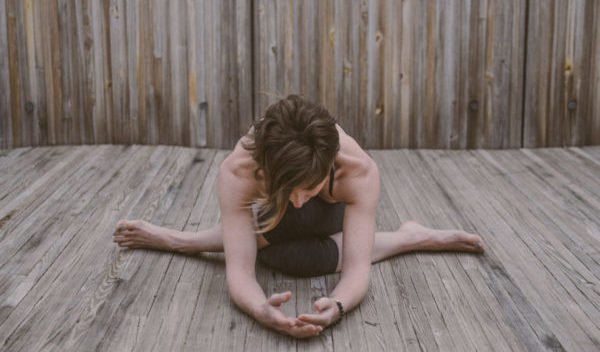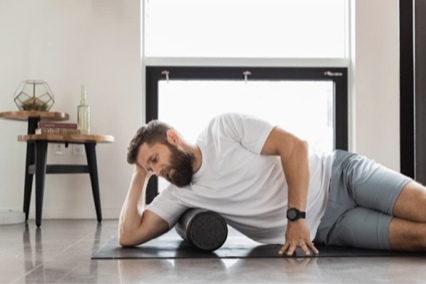Anatomy, Articles, Chinese Medicine, In the Press, Resources, Share Your Story, Yin, Restorative and Meditation, Yoga Medicine® News
Yin/Yang Balancing Yoga Sequence for Fall

Balancing Sequence for Fall
At the heart of Traditional Chinese Medicine is the belief that we are a reflection of the world around us. Each season is marked by characteristics that can be seen in ourselves and in the natural environment. Grief is the emotion tied to the fall, and it makes perfect sense. The green, thriving landscape changes almost imperceptibly at first – a shift in the wind and a few leaves down. The transition becomes much more obvious when the leaves change and the air grows cooler. Without death, life cannot exist. Fall marks the end of growth and renewal, and the beginning of harvest season – a time for our bodies to gather energy for the months ahead.
A Yin Time of Year
We are approaching a Yin time of year. In Traditional Chinese Medicine, fall is associated with the Metal element. This is a time to become more introspective and organized; a time to protect boundaries and guard what we hold sacred. Carefree days of summer are followed by the need for routine and structure. We become a little more solemn and reflective. If you’re feeling the need to stay home and turn down invitations, you’re not alone. This is the perfect time of year to tend to unfinished projects and to begin organizing your life. This is also a great time to deepen your home practice.
The Lung and Large Intestine are the internal organs related to fall and the Metal element. Taking in and letting go are characteristics of these organs. The sequence below offers a balance of Yin and Yang. It targets the Lung and Large Intestine meridian lines, which are like rivers or tributaries that flow through the body. *Note – The Lung and Large Intestine meridians flow primarily through the arms. Follow the sequence below to celebrate fall and honor the change it brings.
Yin/Yang Balancing Yoga Sequence:
Breath
Begin with a blanket roll or bolster set perpendicularly beneath the rib cage. Support your head with a block or folded blanket if needed. Allow the body to relax into the support beneath it. Breathe fully, but keep the ribs and chest soft and easy. Count to 5 on the inhale, 5 on the exhale. After 3-5 rounds insert a small pause at the very top of the inhale. Repeat several rounds.
Sukhasana (Easy Seated Pose)
Continue to watch the breath and fan the arms overhead as you inhale, release the arms by your sides as you exhale.
Cat/Cow
Move through 5-8 rounds, then add side-to-side movements to bring awareness to the rib cage.
Parighasana (Gate Pose)
Add arm circles and move in time with your breath.
Downward Facing Dog to Plank Flow
Move between these two poses with the breath. Lead with the chest and let your arms, shoulders, and core support you.
Shalabhasana (Locust Pose)
Hook thumbs or interlace fingers behind your back. Draw the shoulder blades toward each other and lengthen your arms. Lift the sternum and upper ribs away from the floor. Soften and then repeat.
Anjaneyasana (Crescent Lunge)
Knit the ribs in and reach through the fingertips. Lift gently as you breathe in, ground as you breathe out.
Low Lunge Twist
Bend and lengthen top arm in time with the breath.
Vashistasana (Side Plank)
Arc side body and draw top arm up and over the ear.
Repeat steps 7-9 on the opposite side
Go through a second and third time to build heat and/or lengthen your practice.

Puppy Pose
Here you can shift gears and begin to move to the yin portion of your practice. Find stillness for several deep breaths.
12. Whales Tail (see image above)
Hold for 1-2 minutes on each side.
Savasana
Place a folded blanket over your chest. Allow the arms to lengthen along your sides. Imagine lines from the center of your chest out to each thumb and index finger. Notice any sensation or warmth here.












